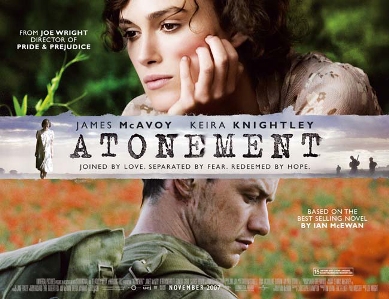On HU
Featured Archive Post: Darryl Ayo on Before Watchmen and the children’s crusade.
I wrote about how guys in romance are hotter than the girls, and often richer too.
Lee Relvas on being a working-class artist.
James Romberger looks at Douglas Fairbanks’ The Mark of Zorro (and makes a storyboard for the film.)
Sarah Shoker on feminism, the Little Mermaid, and Frozen.
Samantha Meier with her first column on women underground cartoonists, looking at women’s comics anthologies.
Frank Bramlett with this week’s PPP post, asking how do comics artists use speech balloons?
Chris Gavaler on why superheroes should be in the academy (plus a syllabus.)
Utilitarians Everywhere
At the Atlantic I argue that 1984 is a romance and Julia is a MPDG.
At Salon I’ve got a song for each month of the year.
At the Center for Digital Ethics I talk about the ethics of quoting from social media.
At the Dissolve I review:
Old Goats, a crappy senior citizen buddy movie.
Mercedes Sosa, a lovely doc about the radical singer.
At Splice Today I talk about:
—how to be anti-war a film needs to not be a war film (looking at Full Metal Jacket and Atonement.)
—Armond White and why 12 Years as Slave as torture porn isn’t a bad thing.
Other Links
Michael Carson talks about Lone Survivor and the ironic kitsch of war movies.
Andreas Stoehr is completely wrong about Her, but his review is still lovely.
Osvaldo Oyola on Ms. Marvel and revisionist feminist history.
Christina Kahrl on how Grantland screwed up in outing a trans woman.
Grace takes down Dinesh D’Souza with Gifs.
Sarah Kendzior with a great piece about academic publishing.
Raymond Cummings provides a public service message from Barack Obama.
Molli Desi Devadasi on problems with the sex work rescue industry.


I think you forgot to add links to the Splice Today articles. Although I haven’t seen 12 Years a Slave, the Armond White heckling controversy prompted me to read some of his reviews, and man, that guy doesn’t write very well. I like the idea of mavericks like White (black highbrow who hates Spike Lee and most other black directors), Stanley Crouch (black guy with hard-to-define politics who hates Cornel West and rap music), and Camille Paglia (lesbian feminist academic who hates lesbian feminist academics). But in reality, I mostly find those people annoying (Crouch especially).
Aw, crud. Sorry about that Jack. Links added (though it looks like you were the only one who wanted them!)
Camille Paglia is a joke; as in, I literally can’t read her without laughing. Haven’t read much Crouch. Armond White is knowledgeable and has some good ideas, but, yeah, at least from what I’ve seen, his essays aren’t that great. The 12 Years a Slave one is a mess.
Heh. I stand corrected. My mom just wrote to tell me the links weren’t there. You and my mom care, Jack.
Wow, I’m impressed that your mom reads your blog. I think Mrs. Berlatsky should start posting comments, defending her son from Jeet Heer, getting into nasty arguments about Jim Shooter with Robert Stanley Martin, etc.
Nah, she doesn’t read it. She just looks at the weekly round up to see what I’ve written other places.
Berlatsky you really gotta read the Rorty essay on 1984.
Huh…okay. Could you summarize what he says?
Rorty suggests that Orwell realizes that there is no truth or fact of the matter that can resist totalization. Thus, the moral of the story is that people can be cruel in the way that they produce art, where the protagonist’s total reshaping at the hands of O’Brien is thought to be artistic production. It’s a story about O’Brien, at its core, written for people who have liberal emotional leanings warning them to be careful about the way that they describe others and the way that they build their private space because in the process they can be unspeakably cruel to others. And, for Rorty, the primary liberal desire is to minimize cruelty.
Huh; that seems like a fairly clever reading. I don’t think I’ve ever read anything by Rorty; do you know where that essay is? What book?
It’s in Contingency, Irony, Solidarity. According to Wikipedia it’s called “The last intellectual in Europe”
I recommend the whole book. It’s a good primer on Rorty, especially if you don’t want to slog through The Mirror of Nature.
Good call on the Rorty essay. Rorty argues that the real love story in the book is between O’Brien and Winston and the torture scene where Winston submits the section of the book most important to Orwell. Rorty’s ironist –someone who has not been fully socialized to accept general truths – needs to enter into erotic relationships with conversational interlocutors to keep being ironic. O’Brien, to Rorty, is an ironist gone to seed, who seeks to turn his private irony public. This might help explain the poorly sketched Julia. Though you could still argue Orwell ultimately believed in, or preferred, Julia’s love over O’Brien’s masochistic version.
Dammit Mike you remember that essay a lot better than I do. Thanks for the expansion.
Not a problem, Owen. Happened to have read it a few months ago.